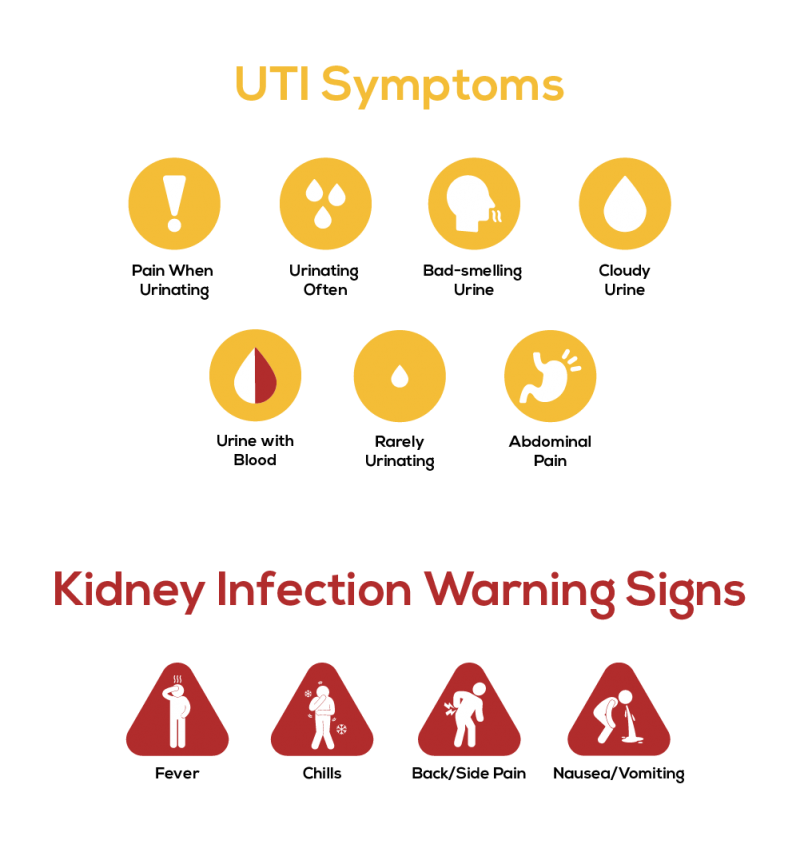Comparing Kidney Stones vs UTI: What You Required to Understand About Their Effect On Health
Comparing Kidney Stones vs UTI: What You Required to Understand About Their Effect On Health
Blog Article
Discovering the Symptoms and Causes of Kidney Stones in Comparison to Urinary System Tract Infections: A Comprehensive Guide
The exploration of kidney rocks and urinary tract infections (UTIs) reveals a complex interplay of symptoms and underlying reasons that warrant careful evaluation. While both problems can lead to hematuria, they offer distinctive medical features and arise from different etiological variables. Comprehending the nuances of each condition is crucial for effective diagnosis and administration. What are the key differences in their symptoms, and just how might these notify therapy techniques? The solution to these inquiries might offer essential insights right into the avoidance and care of these typical urological issues.
Summary of Kidney Stones
Kidney rocks, additionally referred to as renal calculi, type when specific materials in the urine crystallize and accumulation, bring about the development of hard deposits within the kidneys. These rocks can differ in dimension, varying from a grain of sand to a golf round, and can be made up of numerous products, the most usual being calcium oxalate, uric acid, struvite, and cystine. The formation of kidney rocks is influenced by a number of factors, consisting of dietary routines, liquid intake, and genetic predisposition.
Signs of kidney rocks may consist of severe discomfort in the back or side, blood in the pee, queasiness, and constant urination, especially as the stone relocates through the urinary tract. Medical diagnosis usually includes imaging researches such as ultrasound or CT scans, alongside urinalysis to identify the rock's composition.
Therapy options vary based upon the size and kind of stone, in addition to the extent of signs and symptoms (Kidney Stones vs UTI). Small stones might pass naturally with boosted liquid consumption, while larger stones may call for clinical interventions such as lithotripsy or surgical removal. Comprehending the pathophysiology and threat variables related to kidney rocks is necessary for reliable avoidance and administration
Review of Urinary Tract Infections
Urinary system system infections (UTIs) are common microbial infections that impact any kind of part of the urinary system, consisting of the kidneys, ureters, bladder, and urethra. They primarily take place when bacteria, typically from the gastrointestinal tract, get in the urinary system, bring about inflammation and infection. UTIs are classified right into two main types: uncomplicated and complex. Straightforward UTIs commonly occur in healthy and balanced people with typical urinary system systems, while difficult UTIs might emerge in people with hidden conditions, such as structural problems or endangered immune systems.
The occurrence of UTIs is significantly higher in females than guys, primarily because of anatomical distinctions, such as a shorter urethra. Danger variables consist of sex, specific contraceptive methods, urinary system retention, and dehydration. The medical diagnosis of UTIs is typically verified with pee tests, which may disclose the existence of germs, leukocyte, or red blood cells.

Symptoms of Kidney Stones
The pain linked with kidney rocks can show up in various ways, frequently leading individuals to seek clinical focus. One of the most usual signs and symptoms is serious pain, generally local in the lower back or side, which might radiate to the abdominal area or groin. This discomfort, frequently described as sharp or cramping, can take place all of a sudden and might vary in strength.
Furthermore, individuals might experience hematuria, or blood in the urine, which can range from tiny total up to visible discoloration. This symptom may be gone along with by modifications in urinary system behaviors, such as raised frequency or necessity, in addition to pain throughout peeing. Read Full Article Nausea and throwing up are likewise widespread, typically arising from the body's reaction to intense discomfort.
In many cases, individuals may experience fever and cools, particularly if a second infection creates as a result of the blockage triggered by the rocks. Overall, the combination of extreme pain, hematuria, modified urinary system patterns, and gastrointestinal signs can give significant understanding into the presence of kidney stones, calling for timely medical examination and treatment. Understanding these signs is crucial for timely diagnosis and effective monitoring of the problem.
Symptoms of Urinary System Tract Infections
Infections within the urinary system tract frequently provide a series of unique signs and symptoms that can significantly influence life. The most common symptoms include a relentless desire to pee, frequently come with by a burning experience throughout peeing, known as dysuria. People might likewise experience raised regularity of peeing, producing tiny quantities of pee each time.
Various other significant signs include gloomy or reeky urine, visit this site which may show read this the existence of microorganisms or pus. In some instances, pee might show up red or pink due to the visibility of blood, a problem referred to as hematuria. Additionally, individuals might experience pelvic discomfort or pressure, which can further exacerbate the feeling of seriousness.
Systemic signs and symptoms may likewise materialize, such as fever, chills, and exhaustion, particularly if the infection has actually ascended to the kidneys. It is vital to recognize these signs early, as untreated urinary tract infections can bring about more serious problems. Kidney Stones vs UTI. Motivate clinical interest is suggested when these symptoms are observed, enabling for suitable analysis examination and therapy to alleviate pain and prevent further health and wellness concerns
Reasons For Each Condition
Regularly, kidney stones and urinary tract infections develop from unique yet sometimes overlapping reasons that can impact people in a different way. Kidney rocks generally develop as a result of metabolic variables, nutritional choices, and hereditary proneness. Boosted levels of calcium, oxalate, or uric acid in the urine can bring about rock development. Dehydration, insufficient fluid consumption, and high-sodium diets can exacerbate these problems, advertising formation within the urinary system tract.

Understanding these unique reasons is crucial for avoidance and treatment. Kidney Stones vs UTI. While lifestyle adjustments might mitigate the risk of kidney rocks, ideal hygiene and punctual treatment of urinary system infections are necessary for decreasing their reoccurrence and linked problems
Conclusion
In recap, kidney rocks and urinary system system infections present unique signs and symptoms and underlying causes. Kidney stones are identified by extreme pain and metabolic aspects, while urinary system tract infections mostly involve microbial infections leading to urinary system necessity and pain.
The exploration of kidney stones and urinary system tract infections (UTIs) exposes an intricate interplay of signs and underlying causes that necessitate mindful assessment.Urinary system tract infections (UTIs) are common bacterial infections that affect any part of the urinary system, consisting of the kidneys, ureters, bladder, and urethra.Often, kidney stones and urinary tract infections arise from distinct yet sometimes overlapping reasons that can impact people in a different way.In recap, kidney stones and urinary system infections present distinctive signs and underlying causes. Kidney rocks are characterized by serious discomfort and metabolic elements, while urinary system tract infections primarily include microbial infections leading to urinary necessity and discomfort.
Report this page